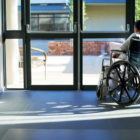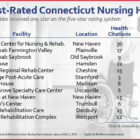Fines & Sanctions
Nursing Homes Penalized For High Hospital Readmissions
|
Most Connecticut nursing homes will see their Medicare reimbursements reduced in the coming year for having high resident readmission rates to hospitals. Of Connecticut’s 224 nursing homes, 75 percent (168) are being penalized by Medicare based on how often their residents were re-hospitalized within 30 days of discharge. Twenty-five percent (56) in Connecticut are receiving bonuses for having few readmissions, according to a Kaiser Health News (KHN) analysis of data from the Centers for Medicare and Medicaid Services (CMS). This is the first time nursing homes are being penalized or rewarded based on how many of their residents are readmitted to hospitals for conditions that could have been prevented. Medicare has administered a similar program for hospitals since the 2013 fiscal year.







